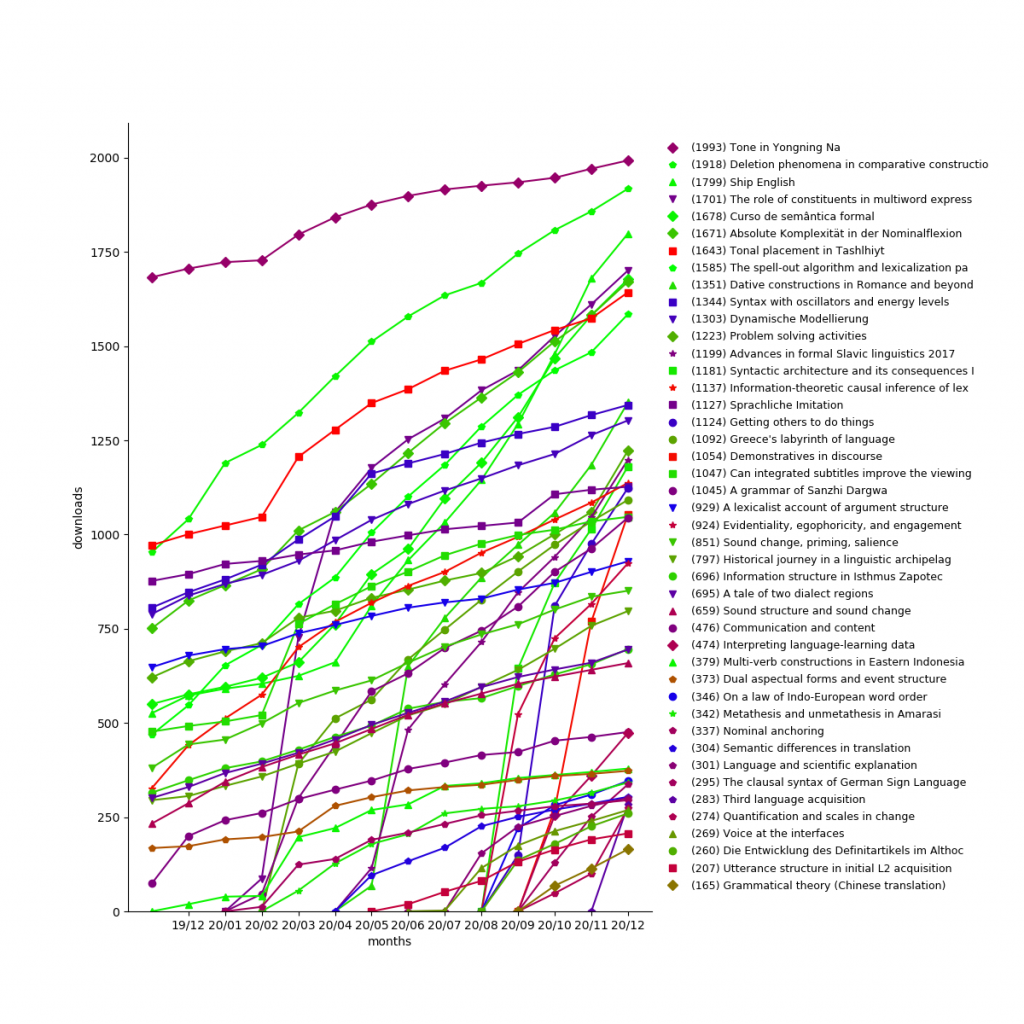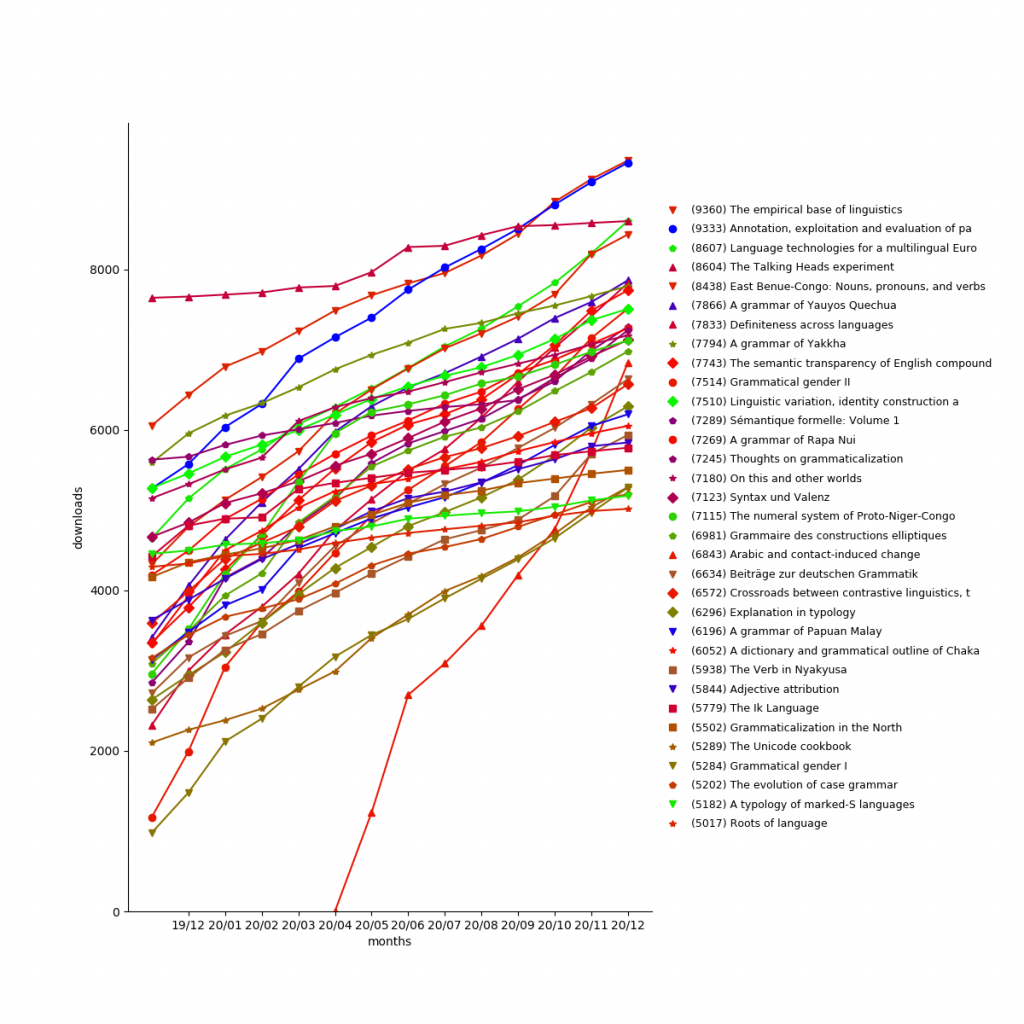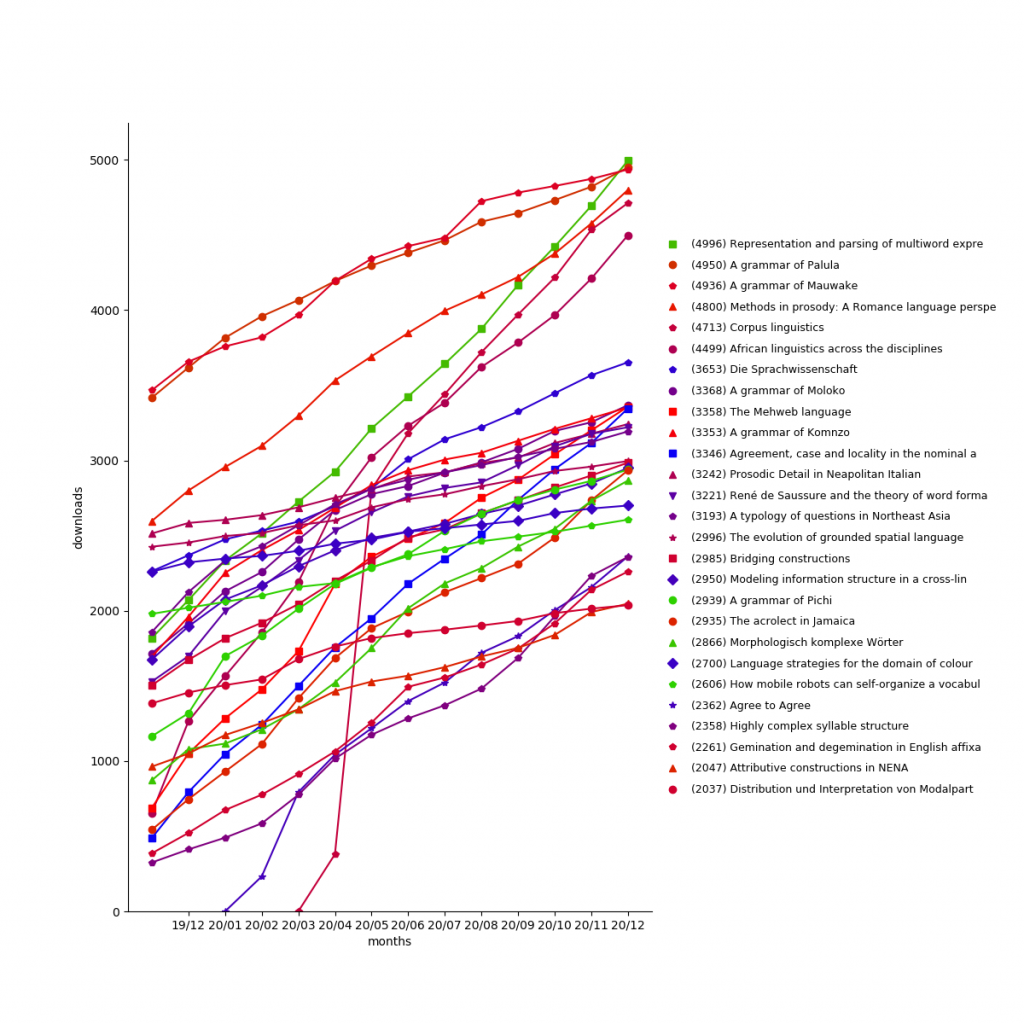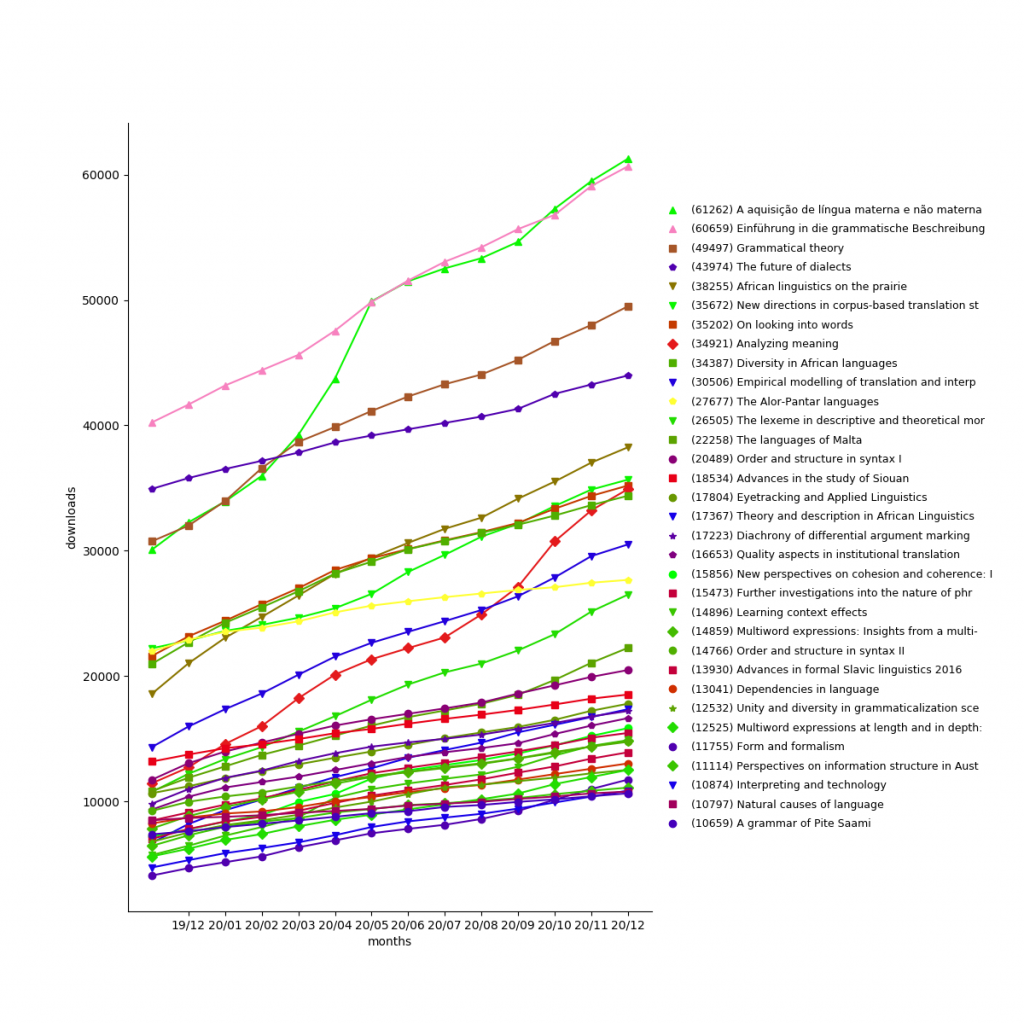We started our annual retrospectives in 2015 (2016, 2017, 2018, 2019). This is the sixth installment, for 2020.
Books and series
In 2020, we published 30 books, and the second edition of The verb in Nyakyusa as a bonus book.
101 works were proposed to Language Science Press in 2020, for a total of 604. In 2019, 78 works had been proposed.
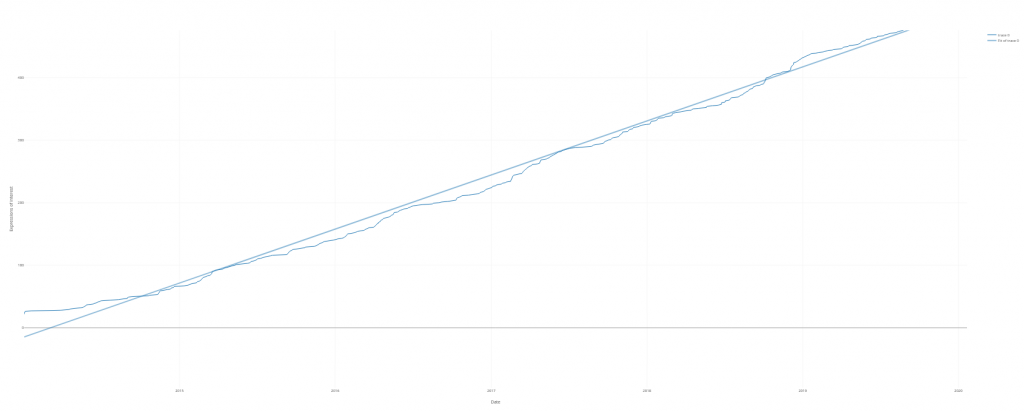
The following figure gives a breakdown of the distribution of these works and their states of completion
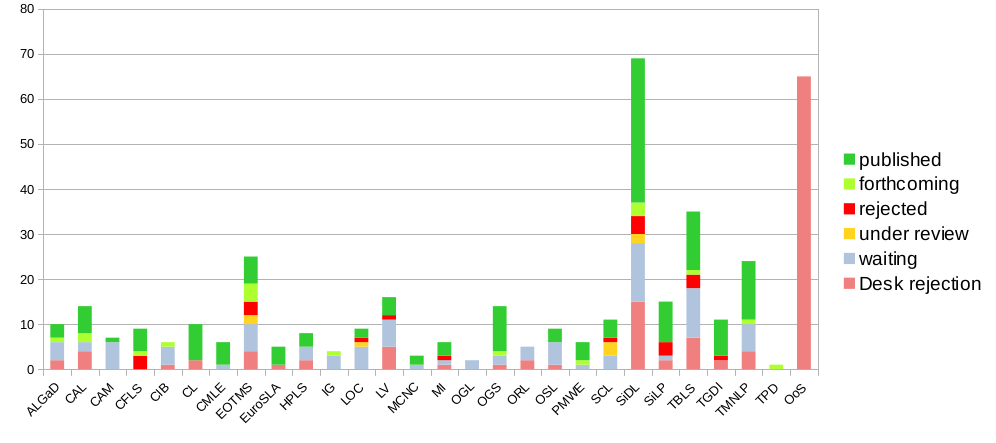
The most active series are Studies in Diversity Linguistics (69), Textbooks in Language Sciences (35), EOTMS (25), and Translation and Multilingual Natural Language Processing (24) .
Series
There are currently 27 series (+3). Last year, we accepted three more series: Open German Linguistics, Open Romance Linguistics, and Topics in Phonological Diversity.
Reviewing
The median time from submission to decision is now 97 days (-1). The median time from submission to publication was 257 days (-14).
The acceptance rate (counting desk rejections) is 53.75% (+1.51) over all series. Only considering submissions where the proposal had been previously approved, the acceptance rate is 88.71% (+1.75).
Downloads
In 2020, LangSci pdfs were downloaded 469,848 times (+106,865 compared to 362,983 in 2018), for a grand total of 1,149,905. This excludes downloads by search engine robots.
The most popular work is A aquisição da língua materna e não materna with 61,262 downloads, followed by Einführung in die grammatische Beschreibung des Deutschen (all three editions) with 60,659 downloads, and Grammatical theory (all four editions): 49,497 downloads.
Regional distribution
LangSci books have been accessed from 136 different countries and territories. The following chart gives a breakdown of the percentages of downloads per month for different areas of the world.
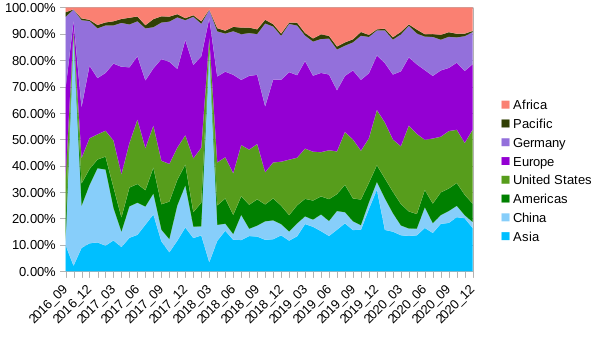
Community involvement
Language Science Press is a community enterprise. We rely on the community for authoring and reviewing, but also for typesetting and proofreading. Across all published books, 236 linguists from all over the world have participated in proofreading. The most prolific proofreader is Jeroen van de Weijer, who has proofread chapters of 70 books.
There are currently 453 proofreaders registered with Language Science Press (+53).
For our 27 series, we are happy to be able to rely on 408 members in editorial boards from 49 different countries on 6 continents.
Paperhive
Of the books published in 2020, 27 went through proofreading on Paperhive. A total of 18,372 comments were left, for an average of 680 (median: 675). The book with the most comments was “Multi-verb constructions in Eastern Indonesia” (1355).
The total number of books which have completed proofreading on Paperhive is 103. Total number of comments over all books is 73,158 (mean: 710, median: 647)
CO₂
Due to the pandemic, we only travelled to one conference, 576km return. This was by train and emitted 0g CO₂. We are still unable to quantify our electricity and heating CO₂ footprint.
Finances
We had a revenue of 113,756.15 € (-18,951.76) in 2019 and expenditures of -120,676.92 € (+675.17). The main cost items are personnel (89,772.25 €), service providers (19,245.13 €), rent (5,752.10 €), book copies (3,825.57€), travel (1,244.21€), and gear (2,557.79€). A total of five different employees of four different nationalities have received a salary from Language Science Press (none of them full time, and only two of them 12 months).
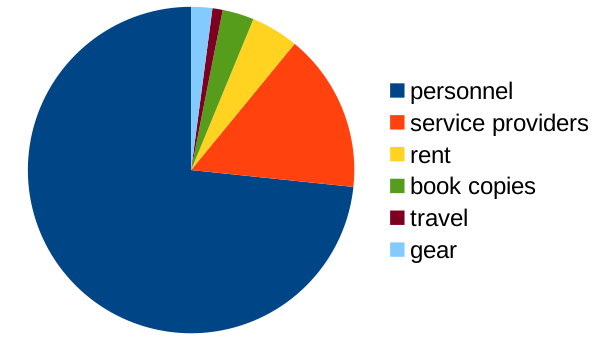
Given that our expenditures remained stable at 120k, as did the number of books we published (30), we again arrive at a very round figure of 4000€ to produce one book (See here for an overview of costs elsewhere, ranging from 8k to 18k€).
The lion’s share of our revenue comes from institutional memberships via Knowledge Unlatched (105,000 €). 7,295,75 € come from print margins, the rest is diverse.
Note that none of theses figures includes VAT.

